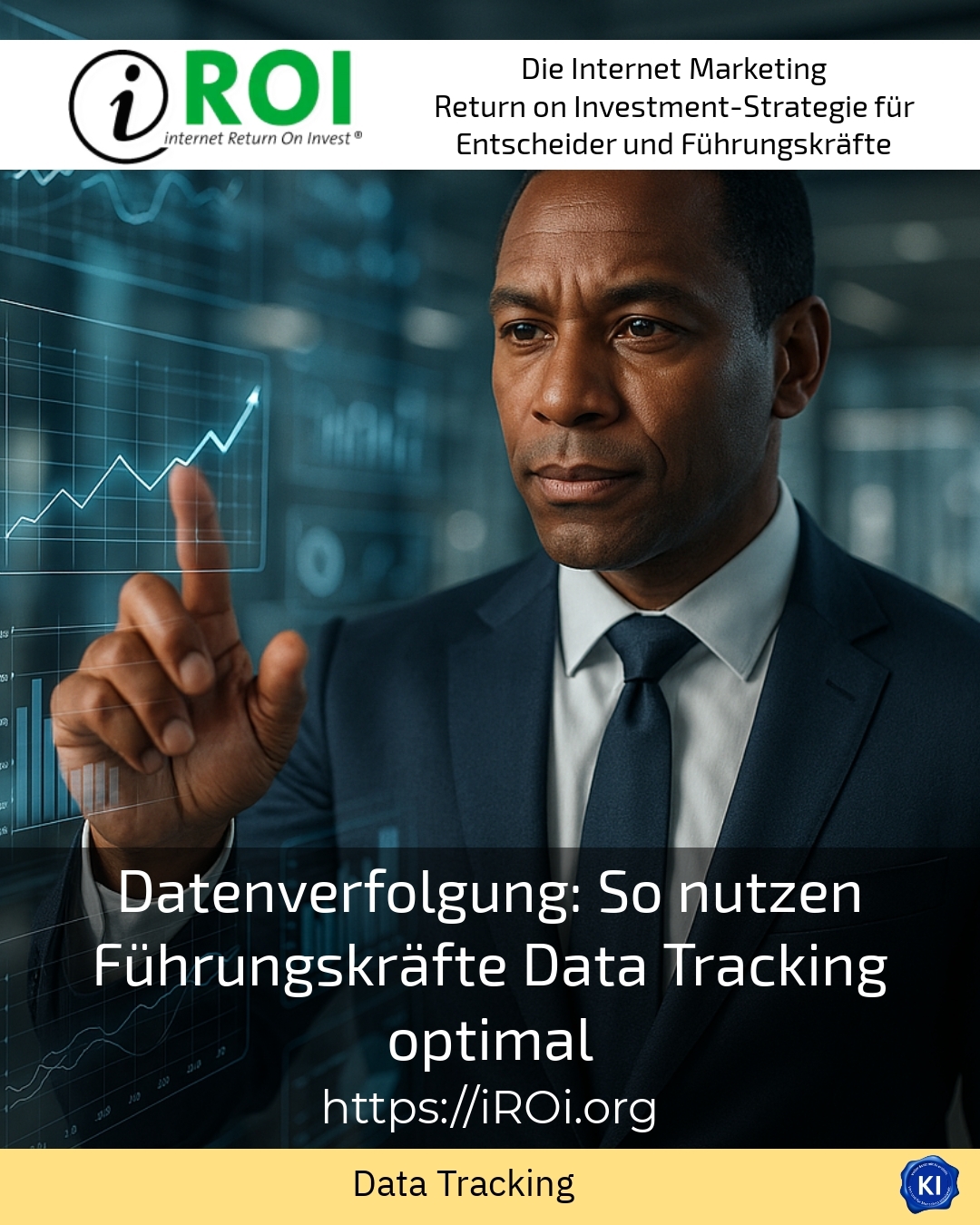Data tracking as a strategic tool for managers
Data tracking is becoming increasingly important in companies. Managers are looking for ways to utilise data specifically for their projects. At the centre of this is the question of how data tracking can be used optimally to make informed decisions and make processes more efficient. Clients often report that they receive valuable impulses through accompanying consulting in data tracking that support their projects in the long term.
Data tracking: Understanding data and using it to improve
Data tracking involves not only collecting information, but above all analysing and interpreting it. Managers often experience how data-based support helps them to draw the right conclusions from the collected data. In this way, data tracking and strategic data analysis promote flexibility within the company by enabling it to react more quickly to changes.
In industry, managers are seeing how data tracking is helping to optimise production processes and reduce downtime. One example is the optimisation of maintenance cycles, which become much easier to plan thanks to accurate data tracking. In the financial sector, managers use data tracking to recognise risks at an early stage and manage portfolios more flexibly. Data tracking is also used in the healthcare sector to precisely monitor patient progression and support individualised treatment plans.
BEST PRACTICE at ABC (name changed due to NDA contract) Data tracking was used to make maintenance planning more efficient. This reduced machine downtime by 20 per cent, which led to better planning of production and enabled agile action.
The role of data tracking in risk minimisation
Data tracking helps managers to make a more informed assessment of risks. The systematic collection of data helps to minimise uncertainties and reduce the likelihood of wrong decisions. This is complemented by modern analysis tools that make patterns and trends visible at an early stage. This enables companies to react more flexibly and make better use of opportunities.
In the technology sector, many report that data tracking enables a faster response to market changes. For example, product developments can be adapted in an agile manner using real-time data. In the service sector, data tracking helps to better understand customer needs and develop personalised offers. Logistics companies also benefit from data tracking through more precise planning and control of supply chains.
BEST PRACTICE at DEF (name changed due to NDA contract) By using data tracking in the supply chain, the company was able to recognise delays at an early stage and react proactively. This led to a significant improvement in customer satisfaction and a reduction in transport costs.
How data tracking increases efficiency and productivity
Managers experience that data tracking helps to optimise processes. Clear, realistic data enables better resource planning and increases efficiency. This streamlines processes and allows employees to focus on essential tasks. In the production environment in particular, data tracking leads to a more targeted use of materials and working time.
In the creative industry, too, data tracking supports the analysis of user behaviour in order to design more targeted content. In retail companies, it provides insights into purchasing preferences and enables marketing strategies to be adapted. This often leads to better customer loyalty and increased sales.
BEST PRACTICE at GHI (name changed due to NDA contract) Data tracking helped to optimise material consumption in production. By analysing data, deviations could be detected and corrected at an early stage, which improved overall efficiency.
Support through data monitoring for data tracking projects
The path to a successful data strategy is rarely straightforward. Many managers encounter challenges when tracking data, for example when selecting relevant data points or interpreting complex analyses. This is where expert support can provide important impetus and facilitate implementation. Practical advice provides support in focussing on the project goals and gives confidence in handling data.
Decision-makers also benefit from external expertise and the associated reflections when it comes to data protection and compliance. This allows potential risks to be minimised and the balance between innovation and legal requirements to be maintained. Clients often report that continuous support for datenverfolgung projects leads to greater sustainability and better results.
My analysis
Data tracking has established itself as an indispensable tool for managers. It is crucial to view data tracking not just as a technology, but as an integral part of a holistic corporate strategy. The integration of analytical capabilities and supportive guidance make it possible to optimally utilise the potential of data tracking. This results in sustainable competitive advantages, improved processes and greater adaptability to changing market conditions.
Further links from the text above:
[1] Data tracking: How decision-makers are securing competitive advantages now
[3] Rethinking data tracking: competitive advantages for decision-makers
[5] The role of data-driven decision-making
For more information and if you have any questions, please contact Contact us or read more blog posts on the topic TRANSRUPTION here.
















